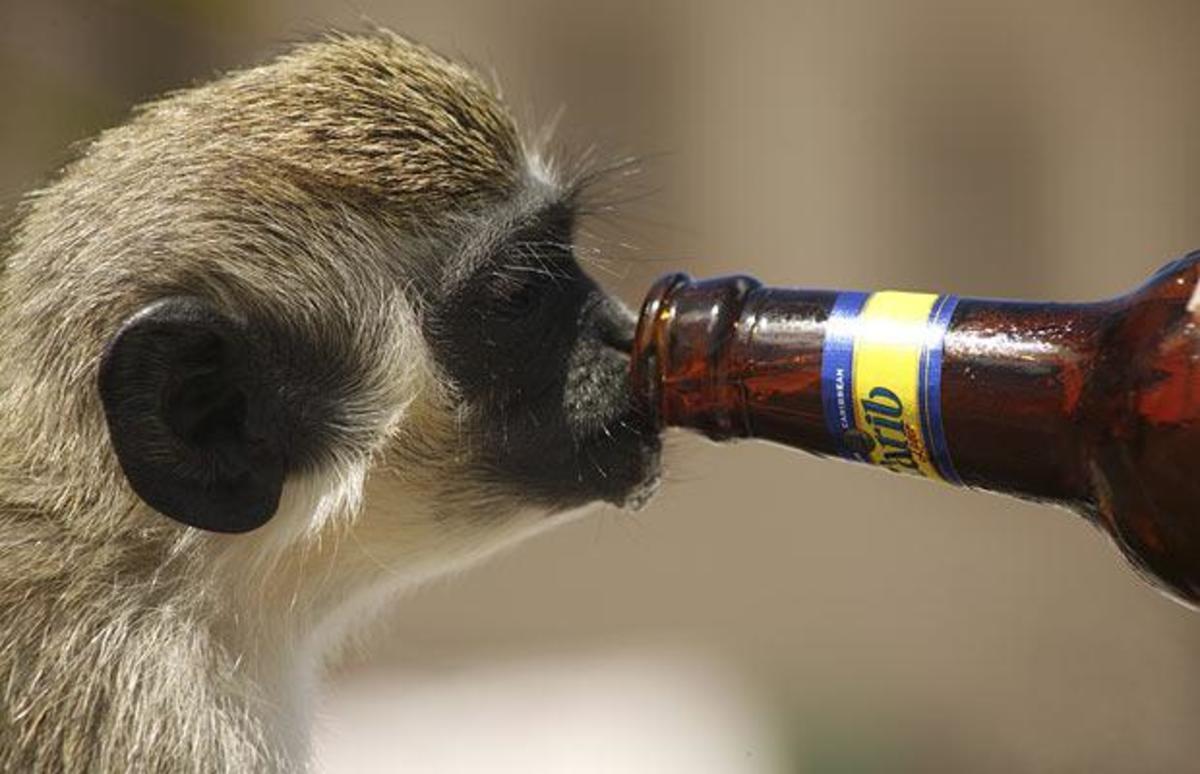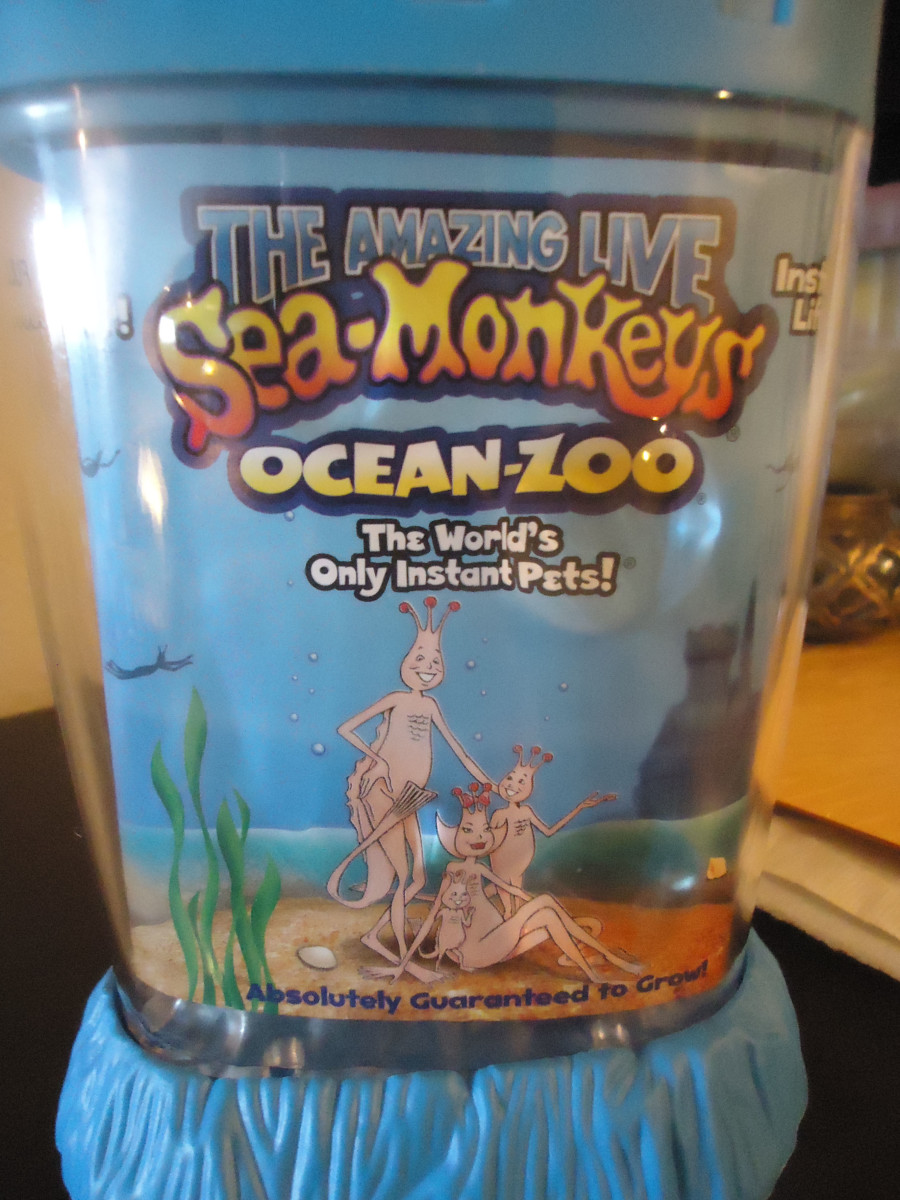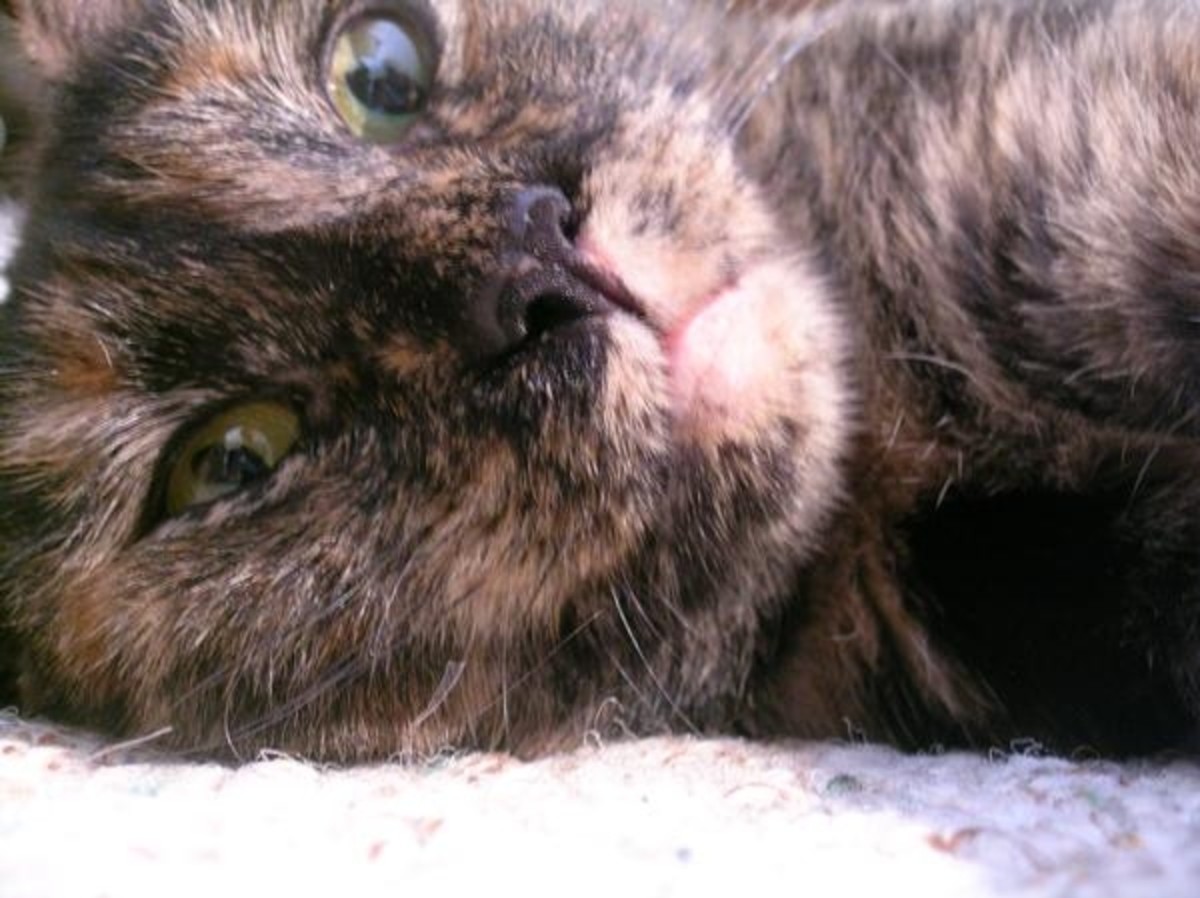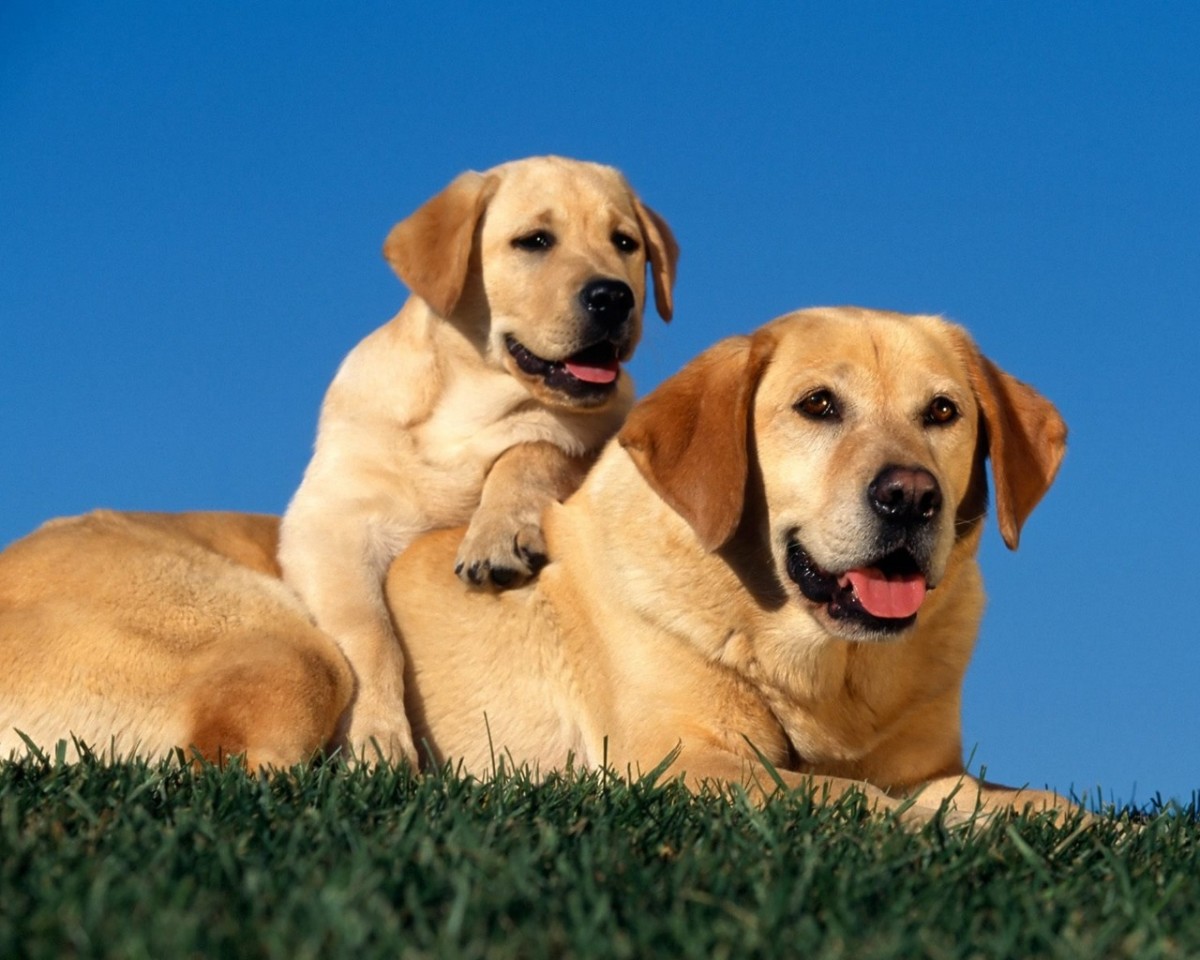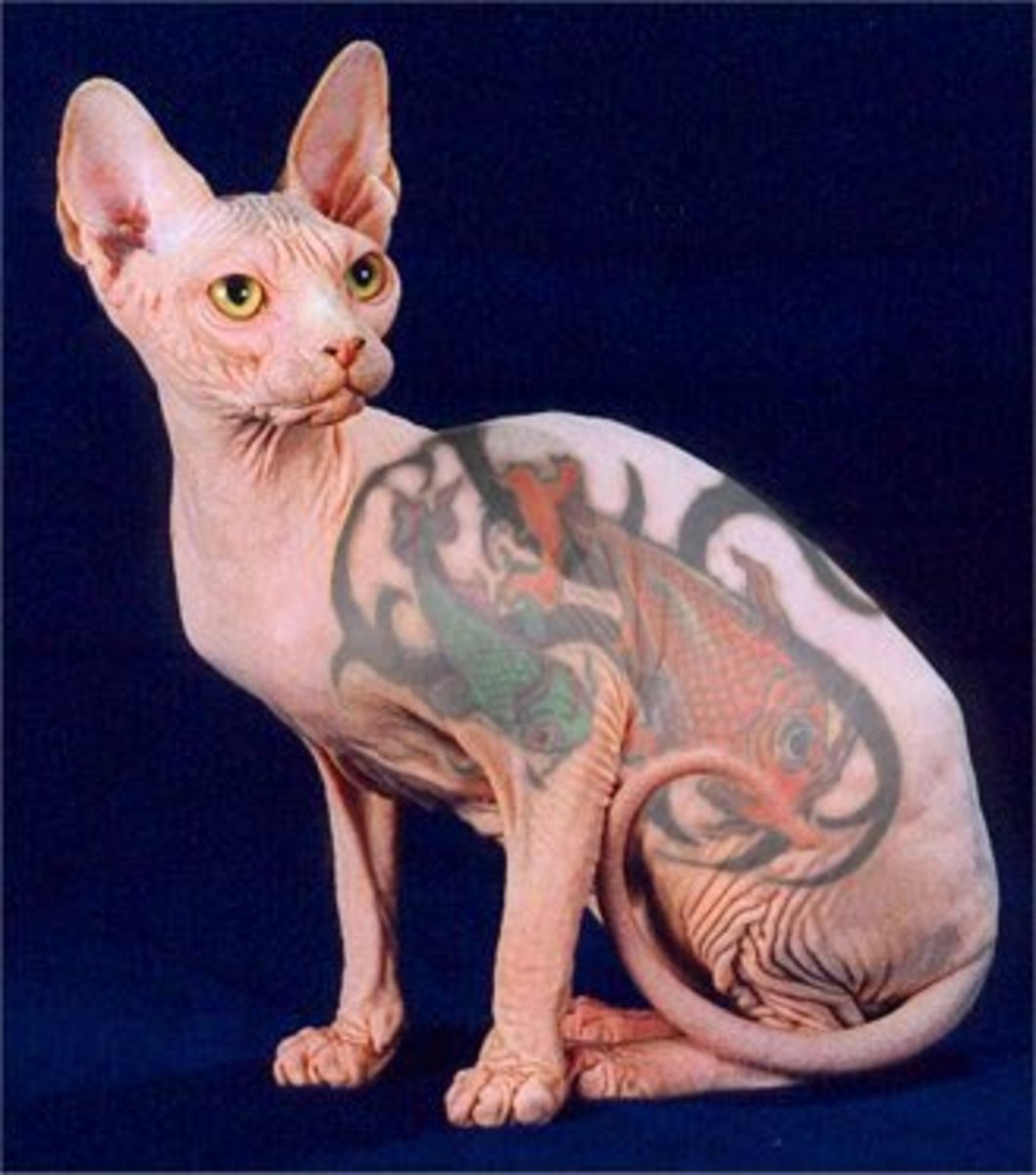Companies Still Experimenting on Animals
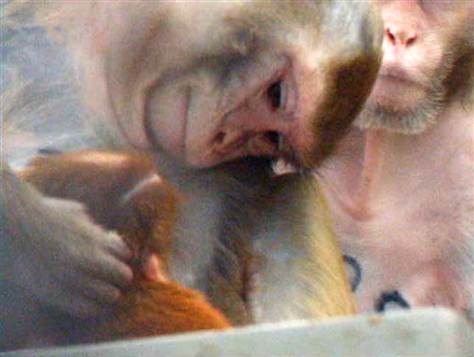
Fun Monkey Facts
- Monkeys can carry the herpes virus and in Thailand 80-90% of the macaques are positive.
- Gorillas walk on their knuckles in order to distribute their hefty weight from their hands.
- Monkeys use facial expressions, gestures, body language. and vocals to communicate.
- After a fight, monkeys often groom one another as a way to make-up.
- When a monkey pulls at his lip and shows teeth, he is signaling aggression.
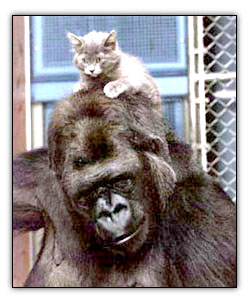
Save the Monkeys
- In areas where monkeys dwell around humans, farmers often see them as a pest and kill them.
- Watch out for meat called "bushmeat." It comes from a monkey.
- Monkeys are also killed for their fur.
-
By recycling and buying recycled products we help preserve the environments monkeys thrive in.
How much like a monkey am I?
A few summers ago I was fortunate enough to go on a VIP tour of the San Diego Zoo. I got up close and personal with some of the most exotic animals; including the opportunity to be licked by an Okapi, a cross between a zebra, horse, and a giraffe! I learned that the big concrete building the hippos are moved to when they are not in the water becomes full of their feces every morning after they shake their tails and stomp in their fresh poo- sending particles and muck flying everywhere! But of everything we saw and heard, touched and cuddled, the monkeys remained one of my favorite pit-stops. With their little pudgy faces with pouty lips, they swing around on long arms and legs, looking like hairy hunched over humans! The babies are especially adorable, held tightly in their mother’s grasp, just as us humans hold our tiny ones. The similarities between humans and monkeys are of constant research and debated but regardless, scientists believe that by studying monkeys they can begin to understand the development of humans better.
Brother From Another Mother
Up until recently, we did not see monkeys as capable of having relationships or feelings to the same extent as humans, recent research is debunking this pompous ideology. Rhesus macaques are a gorgeous primate with a tight reddish face and big brown body. Largely recognized for their similarities to us humans, when macaques become parents they coddle their babies just as we do. Scientists out of Italy have recorded both mother and father monkey speaking in slower, more annunciated versions while gazing passionately at their young. They also kiss their babies, and smack their lips making a smooch-like sound, which the baby often imitates back. The more time we spend watching monkeys, the more we realize how vast their culture really is.
Post-childhood, the math skills of monkeys were tested at Duke University. Here, science discovered that monkeys could compute math problems in a manner adjacent to college students! The same test, given to both monkeys and college students, involved a series of dots and a computer screen, the user was to pin point size of dots and patterns. Researchers were originally skeptical about the competency of monkeys, many admitted assuming it would take weeks before the monkeys understood the test. These doubtful yet educated and experienced researchers were all wrong. The monkeys found this test far from difficult; in fact 76% of them breezed through with passing marks. Of the college students, 94% passed, a higher number surely but considering the lack of practice monkeys have in the business of math, the gap doesn’t seem large enough! These studies proved what many have wondered: monkeys use the same brain processes to compute math as humans.
Just as humans have a variety of cultures, so do monkeys. The bonobo is a unique pygmy chimpanzee that considers females to be the dominant gender in their highly sexualized culture. As any smart woman would, the female bonobo uses their sexuality as a tool of power against the larger and more physically powerful male monkeys. Just like us humans, what is different is unwelcome; the bonobo male monkeys are very protective and aggressive when it comes to outsiders intruding on their local communities.
At Yale University, researches started playing games of ‘rock, paper, scissors,’ with monkeys. Soon realizing that monkeys who lost the hand-game experienced regret, visible through their swift shifts in tactic. In the following round they shied away from their last losing move, choosing instead the last winning gesture they made. Along with conceptualizing how our brain registers regret, researchers are hopeful that this can help seek cures for human patients struggling with past emotional regret. On top of all this, monkeys have also been found to doubt themselves in times of uncertainty. As evidence, monkeys are known to avoid the questions they don’t know and skip to the ones they do. Meaning, monkeys have rationalization skills eerily similar to humans.
The similarities are uncanny but I can only wonder how anyone who's ever owned a pet can be surprised. I can tell by the way my cats, horses, and dogs look at me that they register love, fear, compassion, and also have the ability to store memories. All animals learn patterns, tricks, and even manners if properly taught! We have categorized animals as others, subsequently accepting the cruel punishments they continually endure. We must treat animals as we wish to be treated; the more research done, the more we discover how similar we are to our animal friends. Although our intelligence may far supersede, our emotions most likely do not. I can tell when my pets are happy and when they are sad, and I know I'm not the only pet owner who feels assured of this.
The "Ethics" of Research
The justification for animal research, "to better mankind," is proof that science also recognizes just how similar our species are. Yet, what would be punishable by death if done to a human is simply passé when performed on large quantities of animals. Too often monkeys are destroyed for the sole purpose of ‘research.’ In one UC Davis study, researches drilled open the skulls of subject monkeys so their brains were partially exposed. From there, scientists dripped acid into certain areas in order to destroy function. The University of Connecticut and Columbia University have also participated in similarly horrifying injustices against research monkeys. Despite the heightened awareness and multiple campaigns staked in disfavor of animals as research subjects, the US has reportedly been transporting wild monkeys from other countries into research facilities back home. Big research corporations are well aware animals have a wide variety of feelings and sensations, yet still they perform painful tests on them often without any regards. This speaks volumes for the moral of all companies who abuse animals in their research practices.
The companies that do test on animals using abusive practices-
Iams- owned by Procter and Gamble; this dog-foog brand has killed on average about 50,000 animals per year with research gone wrong. After much work on the part of angry activists, 70% of the companies research animals were released to adoption homes. Unfortunately, 700 cats and dogs still live in a Dayton. Ohio facility owned and operated by Iams.
L'Oreal, known for their popular commercials is also now known for rallying agains a ban on animal testing proposed by the EU. When the ban was finalized and stated as in effect by the year 2013, the company suddenly changed their tune, stating they would stop animal testing for "moral" reasons.... really L'Oreal? I might have grown up on your shampoo slogans but I'm not buying this...
More abusive brands to steer clear of:
Always, Ariel, Aussie, Bold, Braun, Clairol, Crest, Daz, Duracell, Fairy, Flash, Gillette, Head & Shoulders, Max Factor, Olay, Oral B, Pampers, Pantene, Pringles, Wella, Zest
Companies that do not test on animals: (only applies to their products sold in the US)
Aveda, Avon, Barry M, Bath & Body Works, Bobbi Brown, Crabtree & Evelyn Cosmetics, Estee Lauder, Lacura, L’Occitane, Lush Cosmetics, MAC cosmetics, Ojon, Superdrug
UPDATE: AVON does test on animals, just not on their US products. In China, products must be tested on animals, in order to sell their products there the company lowers its moral standards and is currently using animals as test subjects. I'm sure countless other brands do the same, if they sell their products in China they do.


